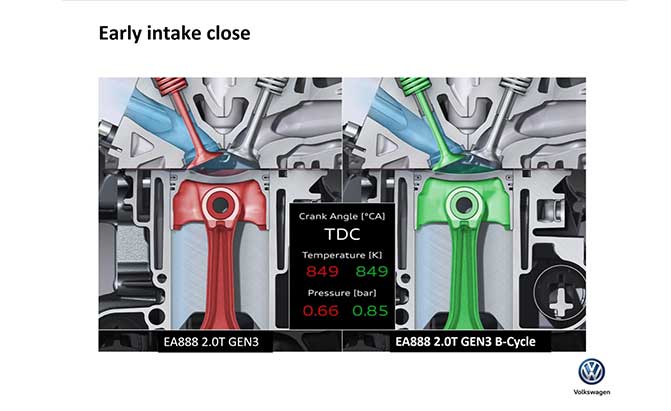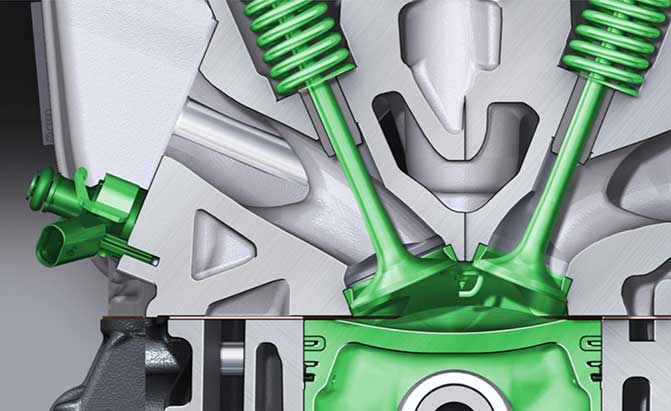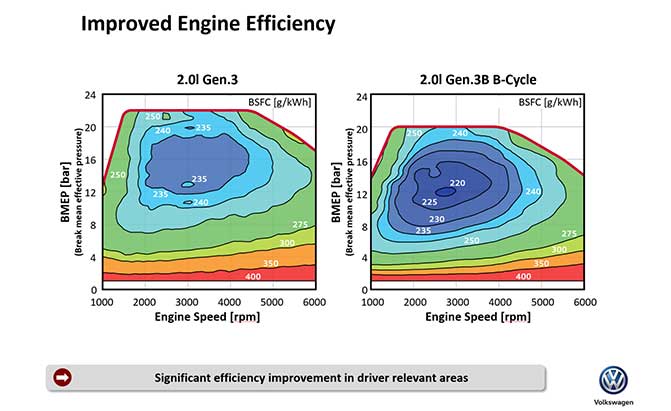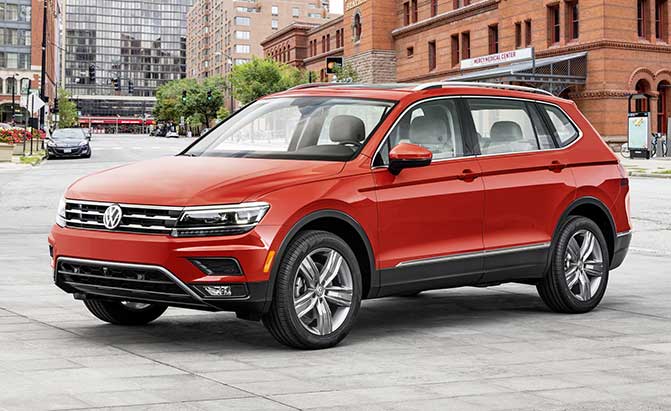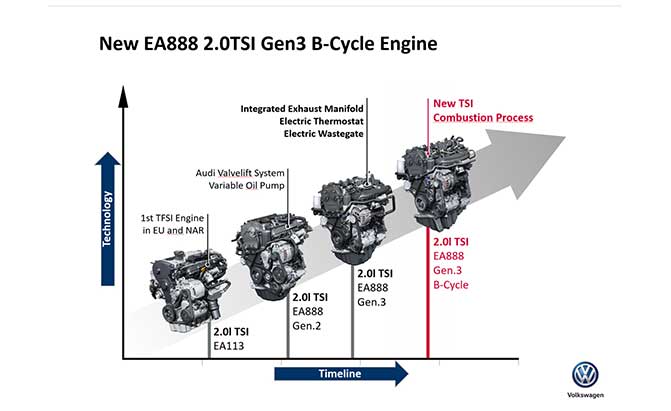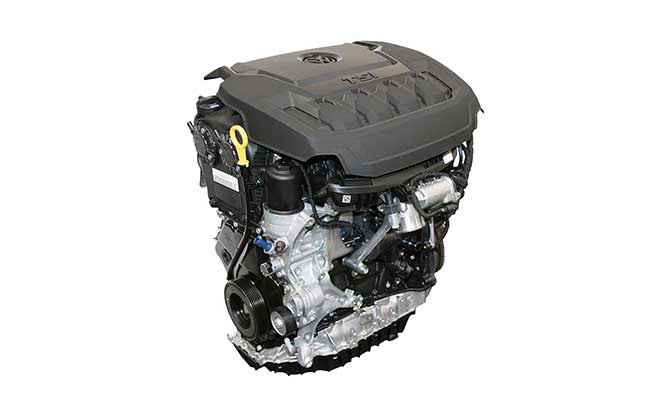Volkswagen has developed a more efficient version of its acclaimed AE888 engine, one with an advanced new combustion process.
This economical powerplant is set to roll out with the brand-new Tiguan. The popular compact crossover will be powered by a third-generation version of VW’s friendly and familiar 2.0-liter turbocharged four-cylinder.
Setting this newly refined engine apart from its predecessors is a focus on efficiency. It’s projected to be around 8 percent more economical than the company’s smaller 1.8-liter turbo, without forfeiting the laudable attributes that have made this engine family famous, things like smooth and quiet operation as well as admirable low-end punch.
A+ Efficiency for the B-Cycle
Delivering these impressive gains is the company’s newly developed “B-Cycle” combustion process, named after Budack, the engineer that came up with it. A modified version of the Miller cycle, the main innovation with this process is the early closing of the intake valves. While sacrificing maximum output, this strategy improves mixing of the air and fuel for cleaner combustion, plus it allows for a more favorable expansion ratio during the power stroke.
As before, turbocharging and direct fuel injection (now with a higher operating pressure) are integral components of this puzzle, ditto for the cast-iron block and aluminum cylinder head, but engineers have added some interesting new technologies. Helping enable the B-Cycle is a variable valve-lift system on the intake camshaft.
Lift and Separate
During light loads, the valves aren’t opened as far during the intake stroke, which helps improve efficiency. When more output is required, the valves open farther, allowing a larger charge of air to enter the cylinders, providing a bigger boom when the spark plug fires.
Other technical details include smaller valves, since maximum flow through the cylinder head isn’t a concern, and an unexpectedly high – for a street-driven turbocharged engine at least – compression ratio of 11.7-to-1. A downsized turbocharger, new piston rings, narrower auxiliary chain drive and smaller main-bearing journals help improve responsiveness and reduce friction.
SEE ALSO: Company Claims it’s Invented the ‘Ultimate Engine’
These changes allowed engineers to highly optimize fuel consumption in the engine’s midrange, where drivers spend the overwhelming majority of their time. No official EPA economy scores are available for the 2018 Volkswagen Tiguan right now, but with a standard eight-speed automatic transmission, we’re betting it will be one of the more efficient offerings in its segment and significantly more economical than the outgoing model, which also requires premium-grade gasoline.
Despite the improved efficiency, performance should not suffer greatly. Running on standard 87-octane fuel, this 2.0-liter B-Cycle engine is rated a more-than-acceptable 184 horsepower with 221 lb-ft of torque, a welcome 20 percent increase for the latter figure, which you can really feel in the seat of your pants.
How Well Does it Work?
We had a brief opportunity to sample prototype versions of the Passat and new Tiguan that were both fitted with this new 2.0-liter engine. We drove the former on public roads and the latter through an off-road course.
Starting with the Tiguan, it handled quite well. Volkswagen’s updated 4Motion all-wheel-drive system proved more than a match for mud, ruts, steep hills and loose surfaces.
Now equipped with a terrain control knob, you can adjust how this traction-enhancing technology behaves in different conditions. There’s an on-road setting and one for snow, plus a couple suited to non-paved surfaces.
In Snow, the transmission upshifts sooner and the acceleration curve is flatter. Select Off Road and the gearbox will not upshift on its own if the shifter is in manual mode; additionally, the anti-lock brakes have been recalibrated so they’re more effective on loose surfaces, plus hill-descent control is enabled, a handy aid when traversing steep inclines.
But back to the engine. Our limited testing in the Tiguan revealed that the B-Cycle engine is smooth and torquey, with no obvious annoyances, though it doesn’t seem quite as refined as other AE888 units we’ve driven in the past.
SEE ALSO: 2016 Volkswagen Golf SportWagen Review
Hopping behind the wheel of a Passat, it was pretty much the same story. This new engine is quiet and responsive, though on the street it didn’t make the car particularly quick. Obviously, this isn’t the focus, but a touch more giddy-up might have been nice, though the performance was completely acceptable and par for the midsize-sedan segment. It’s also worth noting, the car we drove was only equipped with a six-speed automatic transmission, which put it at a disadvantage compared to the Tiguan, which featured an eight-ratio unit. Additionally, Volkswagen representatives told us the engine calibration is not final at this time so things might get even better when this product launches.
Coming Soon to a VW Near You
Volkswagen’s new 2.0-liter turbocharged four-cylinder engine will be the only powerplant offered in the 2018 Tiguan crossover, which is slated to go on sale in the U.S. this summer. After that, it’s expected to propel Passat sedans and Beetle small cars, though don’t be surprised if it proliferates throughout the VW group’s lineup in short order.







